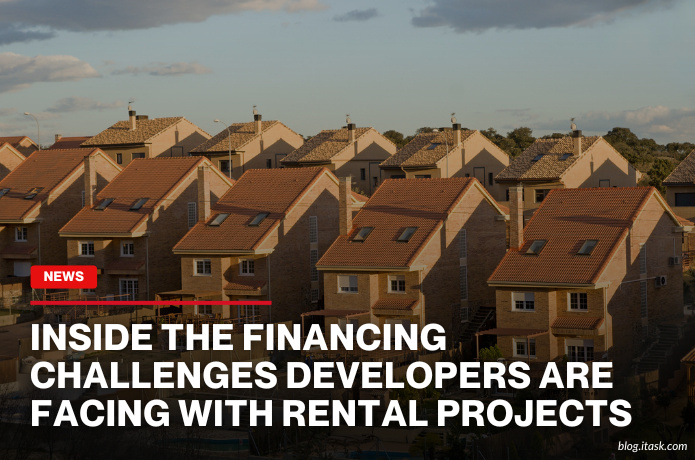Inside The Financing Challenges Developers Are Facing With Rental Projects
Inside The Financing Challenges Developers Are Facing With Rental Projects

Developers in Canada are encountering significant challenges in securing financing for rental housing projects. A recent survey by Ernst & Young, commissioned by the Canada Mortgage and Housing Corporation (CMHC), revealed that 85% of rental developers are struggling to obtain necessary funding. Factors such as high interest rates, stringent government regulations, and escalating construction costs are major contributors to these difficulties.
Unlike condominium developments, rental projects require substantial upfront capital and typically take years to yield returns, becoming self-sustaining only after occupancy. This extended timeline increases financial risk, making lenders more cautious. Consequently, developers, especially smaller ones, are compelled to invest more of their own equity to meet funding requirements.
The survey highlighted a disparity in loan-to-cost ratios based on the size of the developer. Smaller developers, managing assets under $20 million, have seen their loan-to-cost ratios decrease, necessitating higher personal equity contributions. Before 2020, these ratios ranged from 60% to 79%, but have since declined, with some falling below 60%. In contrast, larger developers with over $1 billion in assets have maintained more favorable ratios, often exceeding 70%.
This financing challenge is exacerbating Canada's housing crisis. The slowdown in new rental construction due to funding obstacles is intensifying the shortage of affordable housing options. Despite government initiatives like the National Housing Strategy, which aims to increase affordable housing supply, developers continue to face significant financial barriers.
Industry experts suggest that to address these issues, there needs to be a collaborative effort between the government, financial institutions, and developers. Potential solutions include offering incentives such as tax breaks, reducing regulatory hurdles, and providing access to low-interest loans to encourage investment in rental housing. Without such measures, the challenges in financing rental projects are likely to persist, further impacting the availability of affordable housing in Canada.
In conclusion, the financing difficulties faced by rental developers are a significant impediment to addressing Canada's growing demand for rental housing. Addressing these challenges is crucial for increasing the supply of affordable rental units and alleviating the housing crisis affecting many Canadians.
